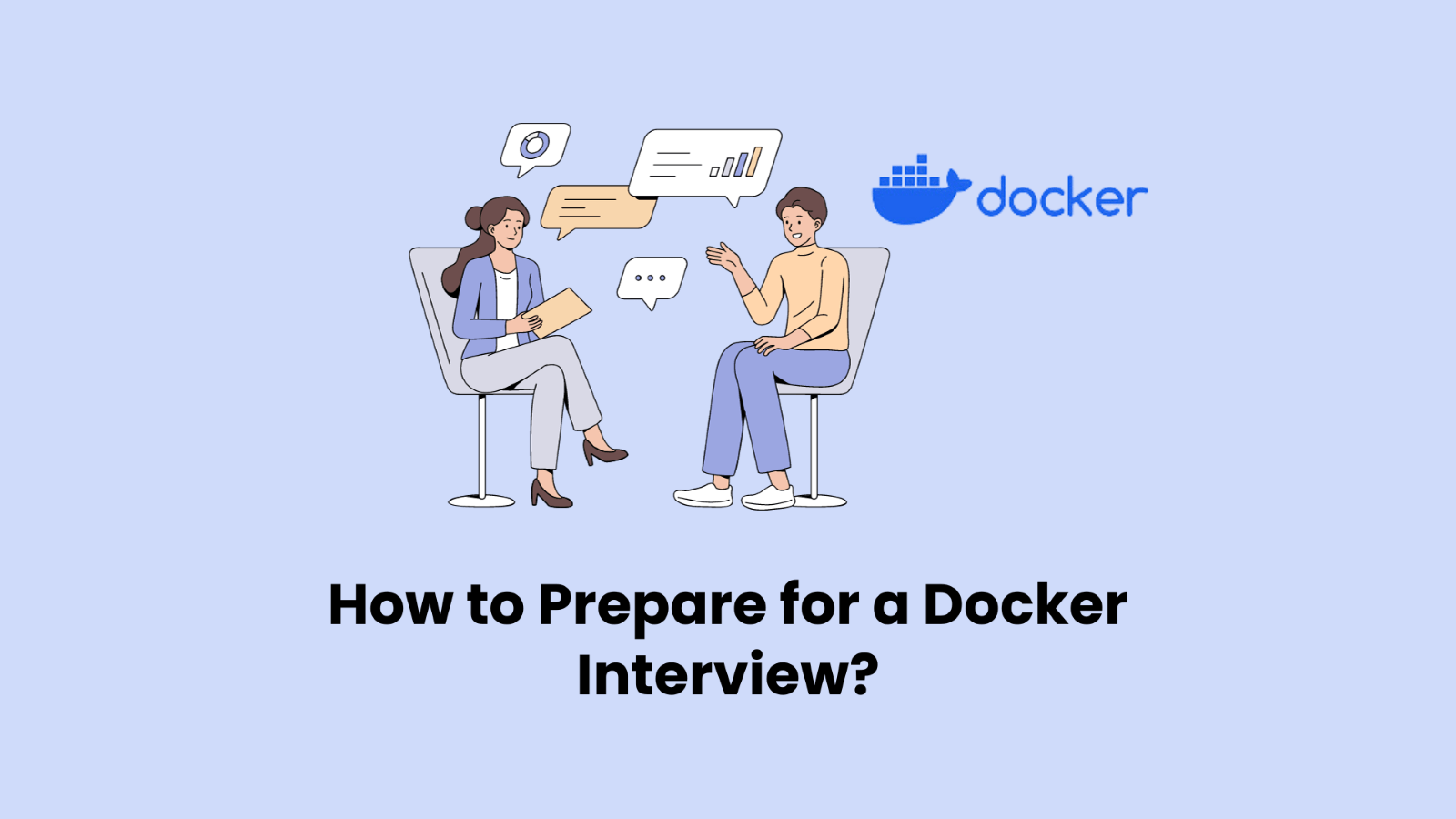To be successful in the job market today means staying on top of the latest tech trends and being updated with the latest knowledge. If you’re into DevOps, system administration, or software development, chances are you’ve encountered Docker. Maybe you’ve even taken some Docker Training or scoured the internet for Docker Interview Questions. But when the rubber meets the road, and you’re prepping for that big Docker interview, where should you begin? Let’s dive into it!

1. Understand Docker’s Fundamentals
First and foremost, understand what Docker is and why it is employed. Docker is a platform for developing, shipping and running programs inside containers. These containers encapsulate a program and include everything it needs to execute, from libraries to system tools, ensuring that it works consistently across environments.
Key Concepts to Review
- Containers: Lightweight and standalone packages for software that encapsulate all the essentials to run an application.
- Images: Read-only templates used to create containers. They’re a snapshot of a container.
- Docker Hub: A cloud-based registry where Docker users and partners can create, test, store, and distribute container content.
2. Dive Deeper into Docker Architecture
Docker is built on a client-server model. Understanding this architecture will help you answer more technical questions and show your understanding of how Docker operates behind the hood.
Key Architectural Components:
- Docker Daemon: Listens for Docker API requests and communicates with other Docker daemons.
- Docker Client: Users primarily interact with Docker by sending commands to the daemon.
- Docker REST API: An interface that programs can use to communicate with the Docker daemon and provide instructions.
3. Emphasise Hands-on Experience
It is not sufficient to have a theoretical understanding of Docker. Perfect practice makes perfect. Containers may be built, operated, and managed. To define multi-container applications, use Docker Compose. This hands-on experience will be useful in boosting your confidence and demonstrating your hands-on knowledge during the interview.
4. Understand Docker’s Ecosystem
Docker doesn’t operate in a bubble. It’s part of a larger ecosystem, and understanding this can give you a competitive edge.
- Docker Compose: Used to define and manage multi-container Docker applications.
- Docker Swarm: A native clustering and scheduling tool for Docker.
- Docker Machine: Helps you install Docker on virtual hosts.
- Kubernetes: While not exclusive to Docker, this powerful orchestration tool is often paired with it.
5. Be Ready for Real-world Scenarios
Interviewers often provide real-world issues to evaluate how you would approach them. You could be asked, for example, how to handle persistent storage in Docker or how to network many containers. Review case studies or simulate real-world initiatives to prepare for them.
6. Brush Up on Best Practices
Like many IT products, Docker has ways to utilise it and avoid using it. Learn about containerisation best practises. This might include:
- Docker image sizes are being reduced.
- Docker container security.
- Logging and monitoring that is effective.
- Managing container data effectively.
7. Network and Engage with the Community
Participate in Docker forums, attend Docker-related seminars, and participate in Docker communities. This exposes you to new information and keeps you up to date on current Docker issues and advances. Furthermore, having a pulse on the community might impress interviewers.
8. Prepare for Behavioral Questions
Remember that interviews aren’t simply about technical abilities. They also look for team fit, problem-solving abilities, and flexibility. Prepare to answer questions on your abilities to troubleshoot under pressure, communicate with a team, or adapt to new technological advancements.
9. Stay Updated
Docker, like all technology, is always evolving. Staying up to speed on the newest updates, versions, and features is critical. Before your interview, check Docker’s official website or trustworthy tech news publications for any fresh developments.
10. Mock Interview Practice
Finally, practice mock interviews. They let you get a sense of how genuine interviews go. Get a competent friend or mentor to take you through the Docker interview questions and give comments if feasible.
Also, If you are looking for private tutors or personal tutors for home tuitions must visit Tutor Hunt It will be veryhelpful.
Conclusion
Whether you’ve just finished a Docker training programme or have been studying Docker interview questions for weeks, adequate preparation is essential for impressing prospective employers. Remember that Docker is more than just a technical competence; it is a mentality and a technology changing how we think about software deployment. Best of luck in your Docker interview!



























